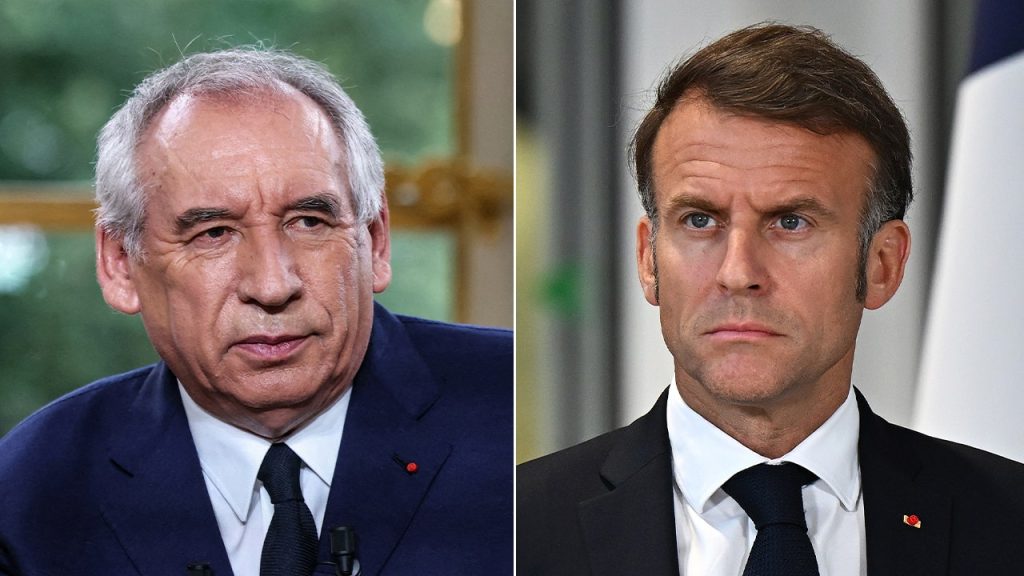Macron’s European Vision Clashes with France’s Domestic Crisis
France finds itself at a critical crossroads as President Emmanuel Macron continues to position himself as Europe’s leading voice on the global stage while his country grapples with mounting internal challenges. The disconnect between Macron’s international ambitions and France’s domestic turmoil has become increasingly apparent, highlighting the complex balance that national leaders must strike between foreign policy and addressing problems at home. With France’s economic stability hanging in the balance and political upheaval threatening to destabilize the government, many are questioning whether Macron’s outward focus is coming at the expense of solving pressing domestic issues.
Since taking office, Macron has consistently sought to elevate France’s role in international affairs, positioning himself as a spokesman for European interests. He has taken decisive stances on major global issues, leading Europe’s response to the Russia-Ukraine war and openly opposing the United States by supporting Palestinian statehood. His willingness to weigh in on matters far from French borders—such as former President Trump’s interest in purchasing Greenland—demonstrates his desire to shape global conversations. This international focus has been a defining characteristic of his presidency, reflecting his vision of France as a pivotal player in world affairs. However, critics argue that this external focus comes at a time when Macron should be directing his attention to solving France’s mounting domestic problems, particularly its alarming debt situation and political instability.
The crisis at home has reached a breaking point with Prime Minister François Bayrou facing a vote of no confidence that he will likely lose—creating yet another leadership vacuum in a year already marked by political turnover. Bayrou, who was appointed by Macron in December 2023, is just the latest in a revolving door of prime ministers who have come and gone during 2024 alone. His proposed austerity measures, aimed at reducing France’s fiscal deficit to 4.6% of GDP by implementing €44 billion in savings and cutting two public holidays, have met fierce resistance from other parties in Parliament and labor unions. Despite France being the European Union’s second-largest economy and an important U.S. trading partner, its deep debt problem threatens to undermine its economic stability. The pending fiscal crisis has created a political powder keg, with organized labor threatening work stoppages and Parliament on the verge of ousting yet another prime minister.
If Bayrou loses the confidence vote as expected, Macron faces limited options, none of which offer easy solutions to France’s underlying problems. He could call a snap election—a risky move given the current political climate—or appoint yet another prime minister, continuing the cycle of leadership instability that has characterized his presidency. According to economic experts, the most likely scenario involves Macron appointing a new prime minister who will propose a less ambitious budget-cutting plan than Bayrou’s, essentially kicking the debt problem further down the road. The populist National Rally party, led by Jordan Bardella, has stated they are preparing for the possibility of snap elections, having already selected candidates for 85% of parliamentary seats. While Macron’s resignation appears extremely unlikely, the constant churn of prime ministers and inability to implement meaningful fiscal reforms reveal the limitations of his governing approach at a time when decisive domestic leadership is desperately needed.
The potential collapse of the French Parliament has alarmed the European Central Bank, which oversees monetary policy for the eurozone. Investor confidence has already shown signs of wavering, with yields on French bonds rising by one-tenth of a percentage point, increasing borrowing costs compared to neighboring Germany. However, experts like Elias Haddad of Brown Brothers Harriman maintain that despite these concerns, the underlying demand for French bonds remains relatively healthy, suggesting that a destabilizing financial crisis is not imminent. Nevertheless, the fact that financial markets are reacting to France’s political instability underscores the real-world consequences of the country’s governance challenges. As France navigates this precarious situation, the implications extend beyond its borders to affect confidence in the broader eurozone economy, highlighting the interconnected nature of Europe’s economic stability.
At the heart of France’s troubles lies a broader cultural shift that has occurred throughout Western democracies—what Ben Habib, founder of the new right-leaning Advance U.K. party, describes as a “dependency culture” that has become embedded across Europe. This cultural transformation has resulted in slower economic growth and massive increases in government debt as more citizens rely on state support rather than generating income through their own efforts. France’s situation, while unique in its specific manifestations, reflects this wider phenomenon affecting many developed economies, including the United Kingdom and Italy. The question facing France—and by extension, other Western democracies—is whether it can reverse this trend and implement meaningful reforms before reaching a breaking point. As Macron continues to project France’s voice on the world stage, the persistent domestic challenges threatening the country’s stability serve as a stark reminder that even global ambitions require a solid foundation at home.
As France moves forward, the contrast between Macron’s international aspirations and domestic realities will likely continue to define his presidency. His ability to navigate these dual challenges—maintaining France’s global influence while addressing its internal economic and political crises—will determine not only his legacy but also France’s trajectory in the coming years. The current situation serves as a powerful case study in the delicate balance between global leadership and domestic governance that all world leaders must navigate. For Macron, the pressing challenge is clear: while speaking for Europe on the world stage may enhance France’s prestige, failing to resolve the country’s mounting internal problems could ultimately undermine both his presidency and France’s standing as a leading European power. The coming weeks will reveal whether Macron can successfully pivot to address these domestic challenges without abandoning his vision for France’s role in global affairs.


